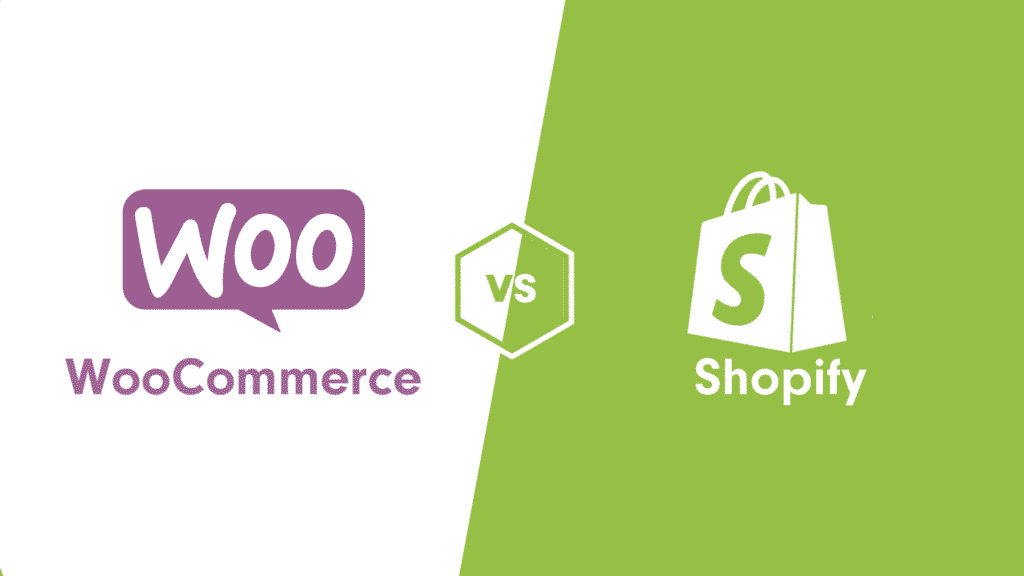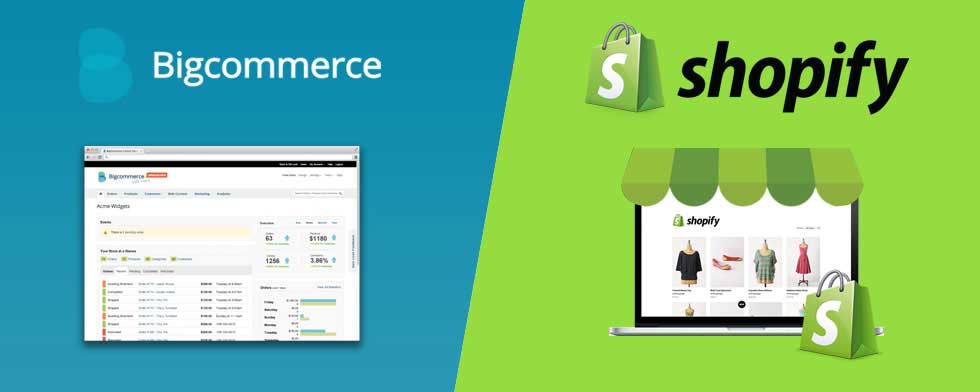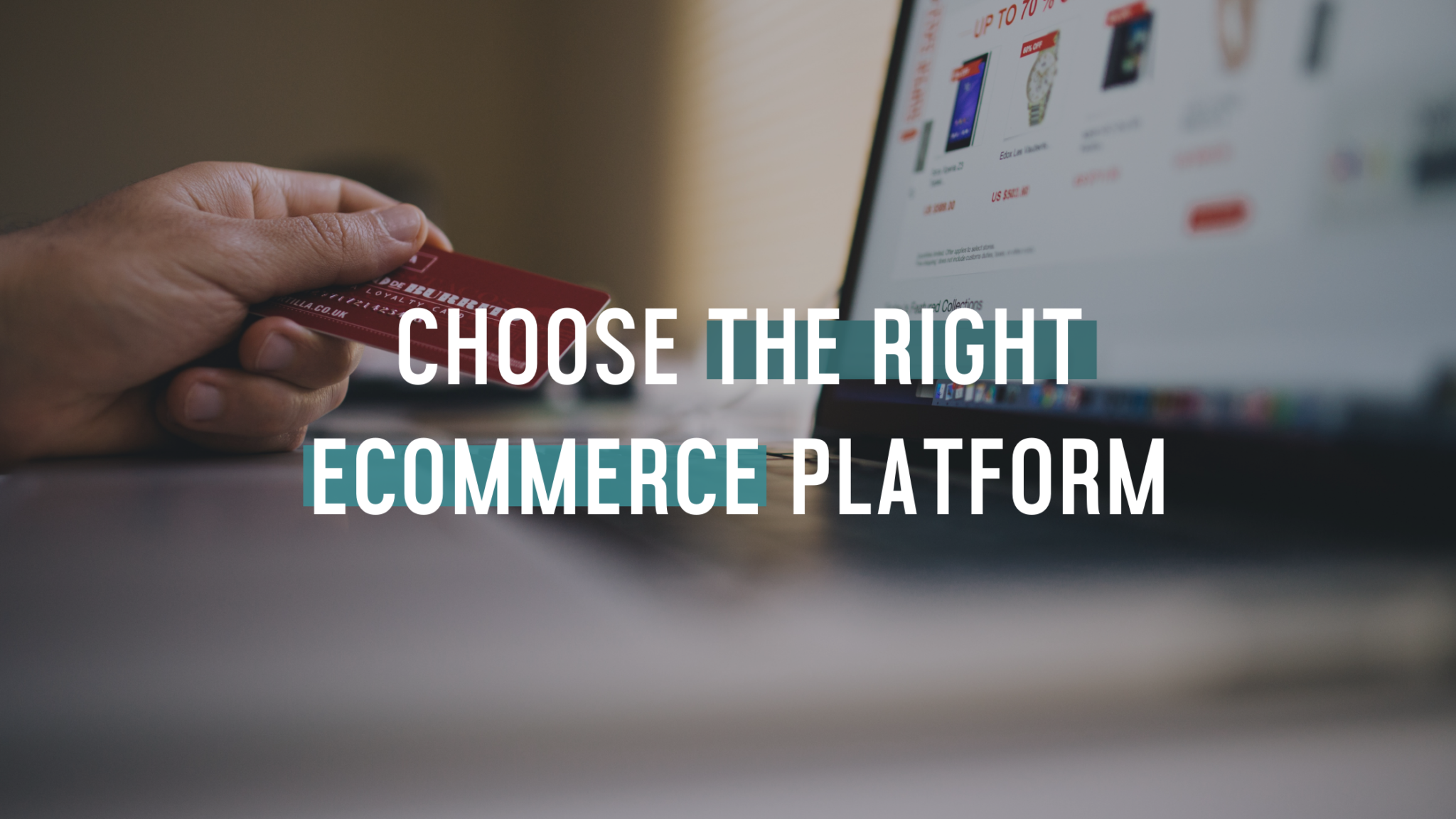There has never been a better time to launch an eCommerce store. eCommerce sales grew by 14% from 2020 to 2021, partly due to COVID-19 and households in lockdown.
But before you jump into this business, one of the first things you will need to do is choose an eCommerce platform for your website.
There are many eCommerce platforms on the market, but the big three are WooCommerce, Shopify, and BigCommerce.
In this guide, we’ll explain what these three platforms are. And we’ll guide you through why you might want to choose them.
We’ll also finish with a comparison between the three, and we will compare WooCommerce Vs. Shopify, Shopify Vs. BigCommerce, and WooCommerce Vs. BigCommerce.

WooCommerce
WooCommerce is a plugin eCommerce platform available for WordPress. The basic version of WooCommerce is free, but you’ll pay for shop extensions if you want something a bit more advanced for your eCommerce store.
The most significant benefit of WooCommerce is that you can attach it to an existing WordPress website. So if you have run a website for a while and want to start selling products, it’s easy to add the WooCommerce plugin.
The downside to WooCommerce is that the functionality is limited, and it can feel slow if you sell many products.
In terms of setup, WooCommerce is easy if you have experience in WordPress. However, if you are starting from scratch, there will be a learning curve.
It takes time to create a WordPress website and WooCommerceon top of that. You may need professional support or spend time reviewing YouTube tutorials.
Shopify
Shopify is the biggest standalone eCommerce platform. There are over a million stores worldwide using the Shopify platform to power their stores.
Shopify is a powerful platform, so it caters well to stores with many products to sell. However, it isn’t free, and you’ll pay a monthly fee to use Shopify, with more premium packages costing upwards of $299 per month.
Shopify is a good option for beginners and people who are non-technical. It is quick and straightforward to set up a new eCommerce store, and the range of free themes will allow you to set up a website that looks professional.
However, Shopify is designed explicitly for eCommerce. If products are only part of your offering, it is not the best platform for other parts of your website, such as your blog or service pages.
While Shopify does include a monthly fee, it does also include hosting. That is an attractive option for business owners who want to manage everything in one place rather than using a separate hosting company.
BigCommerce
BigCommerce is the most scalable of the three platforms. As the name suggests, BigCommerce is an eCommerce platform designed for large, enterprise-level online stores.
BigCommerce includes many marketing and sales tools as part of the platform that is helpful to companies with a comprehensive promotional strategy.
They have a strong showing with SEO best practices, so if you use the platform correctly, it will help you gain organic search engine traffic.
BigCommerce also provides the speed of an enterprise-level platform. So it will give you the power you need for an eCommerce product that publishes hundreds or even thousands of products.
With power comes cost. BigCommerce pricing is similar to Shopify. But if you want their enterprise-level features, you will be looking at pricing levels that they don’t currently publish online.

WooCommerce Vs. Shopify
If your choice is between WooCommerce and Shopify, the platform you choose will depend on your level of technical experience when publishing and managing websites.
If you want an easy setup, go for Shopify. You’ll be able to get a minimal eCommerce platform up and running and publish your first products without a problem. The payment integration is already in place.
If you already run a website on WordPress and want to launch an eCommerce store on a very limited budget, the free WooCommerce plugin will give you the basics to get your store up and running.
That free option is helpful if you want to test your concept and see if your products sell before spending money on a more robust eCommerce platform.

Shopify Vs. BigCommerce
If you browse the features for Shopify and BigCommerce, particularly the package pricing, there are few differences between the two.
However, if you want a basic eCommerce platform, both businesses offer this for $29 a month. But BigCommerce has a few more features as standard in that pricing range.
For example, BigCommerce provides ratings and reviews as standard. In contrast, you’ll need to pay for an add-on in Shopify to get that same feature.
BigCommerce also has real-time integration for up-to-date carrier and shipping costs.
However, Shopify does have a $9 per month package, which BigCommerce doesn’t offer.
This package gives new stores the chance to get a very limited eCommerce store up and running on a minimal budget, which is helpful for proof of concept.
WooCommerce Vs. BigCommerce
Since Shopify and BigCommerce are relatively similar in price and functionality, your choice between WooCommerce and BigCommerce will very much depend on your technical ability and your budget.
BigCommence will have a monthly fee to cover, but you will get your store up and running quickly without the need for technical training.
However, for those of you with an existing WordPress website who want a low-cost way of selling products, WooCommerce will give you what you need.
Which eCommerce Platform Is Right for You?
If you’re just starting and want to test your idea, out of WooCommerce Vs. Shopify, try a simple setup on WooCommerce.
However, if you have grand ambitions for your eCommerce launch and need to select the best eCommerce platforms, opt for either Shopify or BigCommerce.
Between Shopify Vs. BigCommerce, the latter is a better option for the basic package. However, they both offer a free trial, so it’s worth testing them out to see which one you find easier to use.
Alternatively, you could opt-out of a dedicated platform. Instead, you could choose to sell your products on a marketplace such as eBay or Amazon. That way, you will tap into the millions of customers already on those platforms.
If you’re planning a website to wow your audience, talk to us today about our branding and marketing services and how we can help you with your launch.

